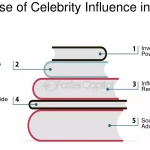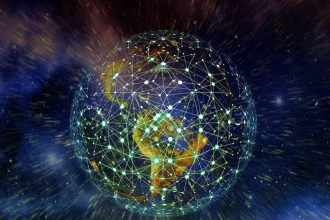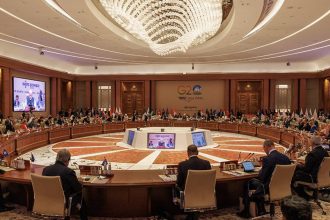The Rise of Celebrity Diplomacy in the Digital Age
In today’s hyperconnected world, the boundary between politics, entertainment, and technology is rapidly blurring. Celebrities are no longer confined to the red carpet — they have become political influencers, digital activists, and brand ambassadors for global causes. Platforms like X (formerly Twitter), Instagram, and YouTube have given public figures a level of reach and influence once reserved for governments and major media outlets. Their voices now shape political conversations, public sentiment, and even international relations.
- The Rise of Celebrity Diplomacy in the Digital Age
- When Fame Meets Foreign Policy
- Tech Platforms: The New Arenas of Influence
- Political Leaders Adopt Celebrity Strategies
- The Role of Technology in Political Branding
- Globalization and the Celebrity Power Network
- The Business of Influence
- Ethical and Cultural Backlash
- FAQs
- Conclusion
When Fame Meets Foreign Policy
From climate change campaigns to humanitarian advocacy, celebrities are engaging directly in diplomacy. Angelina Jolie has served as a UN Special Envoy for refugees, using her global fame to highlight crises in war-torn regions. Leonardo DiCaprio, meanwhile, leverages his influence to promote environmental sustainability, addressing global forums about climate policy. Taylor Swift and BTS have used their platforms to discuss social justice, equality, and mental health — issues that resonate globally.
Yet, the intersection of celebrity and politics is not always smooth. Critics argue that celebrity involvement often simplifies complex global issues or transforms them into public relations opportunities. Nevertheless, their ability to command attention and mobilize millions remains unmatched. In an age where governments struggle to communicate effectively, fame has become a diplomatic asset.
Tech Platforms: The New Arenas of Influence
Technology has amplified celebrity power beyond traditional media. Social platforms are now the digital stages where political battles and advocacy campaigns unfold. Companies like Meta, X, and TikTok have become global megaphones for activism, shaping both awareness and misinformation.
Celebrities with massive followings can now bypass traditional media gatekeepers, speaking directly to audiences. This power shift has democratized influence but also raised ethical and political questions. When a celebrity takes a political stance online, the message reaches millions instantly — and the backlash can be equally swift.
Tech companies find themselves in a delicate position, balancing freedom of expression with the responsibility to curb hate speech, disinformation, and political manipulation. In this context, the worlds of tech regulation and celebrity influence are becoming deeply intertwined.
Political Leaders Adopt Celebrity Strategies
Interestingly, politicians are also borrowing from celebrity playbooks. Leaders like Barack Obama, Narendra Modi, and Volodymyr Zelenskyy have mastered social media storytelling to humanize their image and connect emotionally with voters. In the digital era, politics has become performance — where charisma and authenticity often outweigh policy depth.
This shift reflects a global trend: people trust personalities more than institutions. As faith in traditional political systems declines, leaders increasingly rely on influencer-style engagement to maintain relevance. The result is a hybrid world of governance where political messaging, branding, and entertainment merge into one.
The Role of Technology in Political Branding
Technology companies are now deeply involved in political branding. AI-generated campaign content, targeted advertising, and data analytics allow political figures to craft hyper-personalized messages. Celebrities use similar tactics to maintain engagement, blurring the line between marketing and propaganda.
For example, AI-driven sentiment analysis helps both politicians and influencers gauge public reaction in real time. This technological integration transforms political discourse into a form of consumer engagement. The same algorithm that recommends a movie trailer can now shape opinions about foreign policy or social movements.
Globalization and the Celebrity Power Network
Globalization has transformed celebrity activism into a global movement. Social media allows stars from Hollywood, Bollywood, and K-pop to inspire international solidarity. When celebrities raise awareness about crises — from the Gaza conflict to climate disasters — their reach transcends borders.
However, this global power comes with challenges. Governments sometimes view outspoken celebrities as political threats, especially in authoritarian states where dissent is punished. Still, celebrity influence often pressures policymakers to act, bringing public scrutiny to issues otherwise ignored.
The Business of Influence
Beyond activism, celebrity engagement in politics and technology is also a lucrative business. Partnerships with brands, NGOs, and political campaigns turn visibility into economic power. The rise of digital endorsements and “cause marketing” has blurred the distinction between genuine advocacy and monetized influence.
Meanwhile, tech companies exploit celebrity endorsements to boost credibility. From Apple’s collaborations with stars to Elon Musk’s personality-driven tech empire, fame has become a strategic economic force. The merging of tech innovation, political messaging, and celebrity branding is now a defining feature of the global economy.
Ethical and Cultural Backlash
Not all celebrity interventions are welcomed. Some are accused of “performative activism” — advocating for causes online without meaningful contribution. Others face backlash for political hypocrisy or cultural insensitivity. The cancel culture phenomenon has turned public opinion into a volatile weapon, capable of destroying reputations overnight.
Moreover, as AI begins generating digital clones of celebrities, questions arise about authenticity and control. Who owns a celebrity’s digital likeness? Can a synthetic version of a person speak politically without consent? These debates highlight the growing collision between ethics, technology, and identity.
FAQs
What is celebrity diplomacy?
Celebrity diplomacy refers to the involvement of famous individuals in political or humanitarian causes, using their popularity to influence global policies or raise awareness.
How has technology amplified celebrity influence?
Social media platforms and AI tools allow celebrities to reach billions directly, bypassing traditional media and engaging audiences on personal and political issues.
Are political leaders becoming celebrities?
Yes, many political figures now adopt influencer-style communication, emphasizing image, relatability, and emotional storytelling to connect with the public.
What are the risks of celebrity involvement in politics?
Oversimplification of issues, misinformation, and commercialization of activism are major concerns associated with celebrity-driven politics.
Can technology regulate the misuse of influence?
While platforms can moderate harmful content, true regulation depends on ethical leadership, transparency, and public digital literacy.
Conclusion
The convergence of celebrity culture, technology, and politics marks a profound transformation in global communication. Celebrities have become digital diplomats, tech companies serve as global megaphones, and political leaders act like influencers. In this interconnected ecosystem, influence is currency — and visibility equals power.
As technology evolves, the challenge will be to balance authenticity, responsibility, and truth. The age of celebrity politics has only just begun, and its impact on democracy, culture, and technology will shape the world for generations to come.













